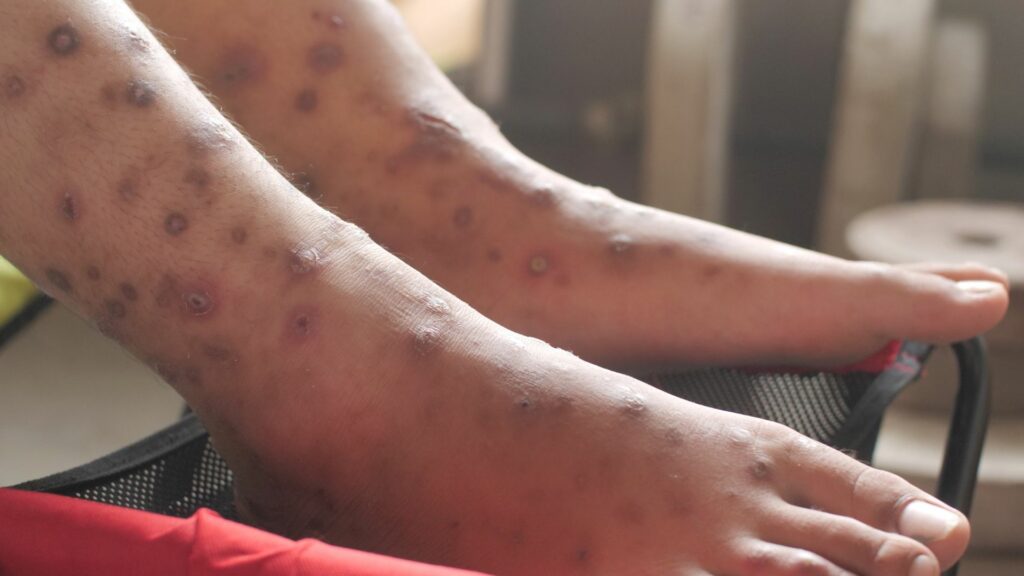A rapid rise in scabies cases has been observed across Europe in recent years, and a parliamentary response published by Health Minister Frank Vandenbroucke (Vooruit) has confirmed the trend in Belgium.
"As in other European countries, Belgium does not monitor scabies, so it is not possible to give exact figures," the Minister stated. "However, the number of registrations of ICPC2 code S72 ('scabies or other ascariasis') per annual contact group has risen from 0.79 per 1000 patients in 2012 to 2.18 per 1000 patients in 2021." (Data from 2022 and 2023 is not yet available.)
This means that incidence rates have risen by 176% in ten years, with individuals aged between 15 and 24 the most at risk of infection.
"The cause of the increase currently observed in several European countries is not known," said Vandenbroucke. "It is probably the result of a combination of different factors: complex treatment of scabies patients and their contacts, possible drug resistance, increased tourism and emigration, etc."
What is scabies?
Scabies is caused by eight-legged mites less than half a millimetre in length. These mites penetrate under the skin of the infected person to lay eggs and deposit excrement. The allergic reaction caused by their presence leads to intense itchiness. Scabies infections are therefore more uncomfortable than they are dangerous.
Importantly, infection is not due to poor hygiene. It occurs following direct and prolonged contact of over 15 minutes with an infected person. It does not go away on its own and must be treated with medication.
"Scabies cannot be cured on its own; treatment is essential," noted Walloon health organisation Aviq. "This involves taking medication, in cream or tablet form, and disinfecting the environment, including bedding and clothing." People in close contact to the infected person must also be treated, even if "the person is no longer contagious 24 hours after treatment."

